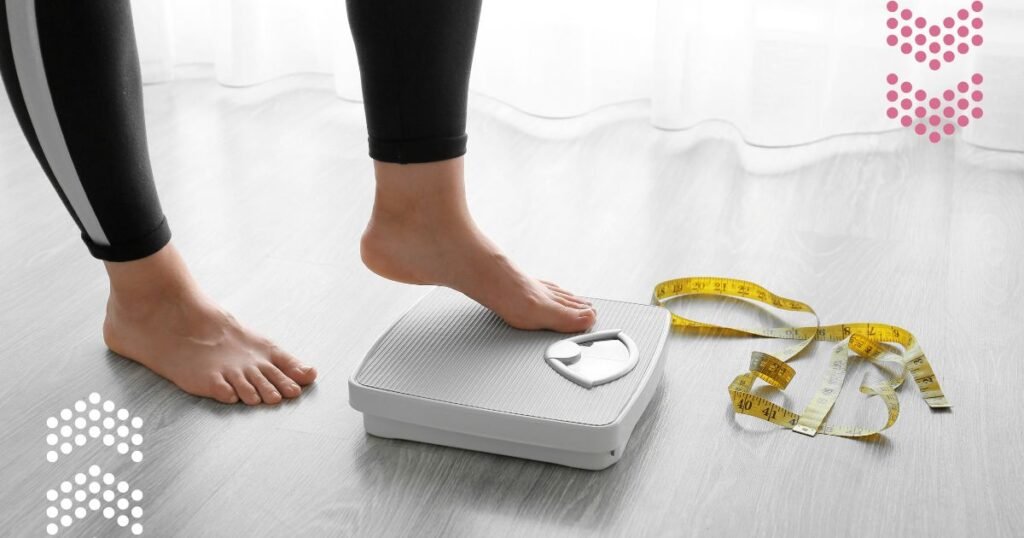Managing Emotional Stress and Hormonal Changes Postpartum for Women
The postpartum period is often described as a time of joy and excitement, yet it is also filled with immense physical, mental, and emotional challenges for new mothers. Beyond the physical recovery, new mothers face significant emotional stress and hormonal changes that can impact overall well-being. The shifts in hormones post-birth, combined with the emotional demands of caring for a newborn, can lead to challenges in both mental health and physical health, including postpartum weight retention.
This article will explore the hormonal changes and emotional stress that occur postpartum and provide practical strategies to help manage them. Understanding these changes is crucial for maintaining not only mental health but also for successfully managing postpartum weight and achieving long-term fitness goals.
Understanding Hormonal Changes After Childbirth
What Hormonal Changes Occur Postpartum?
After childbirth, a woman’s body undergoes significant hormonal fluctuations. During pregnancy, hormones such as estrogen and progesterone increase to support fetal development and prepare the body for childbirth. However, after delivery, these hormones drop sharply. Estrogen and progesterone are the primary hormones that experience a rapid decline, which can lead to mood swings, irritability, and fatigue.
Another important hormone, prolactin, increases postpartum, especially in breastfeeding mothers. Prolactin is responsible for milk production and nurturing behaviors, but it also affects mood regulation. Along with prolactin, oxytocin—often referred to as the “love hormone”—is released during breastfeeding, promoting bonding with the newborn. While prolactin and oxytocin play essential roles in postpartum recovery and emotional well-being, they can also contribute to emotional vulnerability.
For many women, these hormonal changes create emotional instability, which is why it is crucial to monitor and manage these shifts carefully. A failure to address hormonal imbalances can exacerbate feelings of anxiety, depression, and even postpartum depression.
How Hormonal Fluctuations Affect Weight and Emotions
Hormonal imbalances after childbirth not only affect mood but also impact weight management. For example, the decrease in estrogen levels can slow metabolism, making it harder to lose weight. Estrogen plays a key role in regulating fat storage and metabolism, and a sudden drop can cause the body to retain more fat, especially around the abdomen.
Emotional changes tied to hormonal imbalances can further complicate weight loss efforts. When a woman feels emotionally unstable, she may be more prone to emotional eating or have difficulty adhering to a weight loss plan. This creates a cycle where stress and emotional eating hinder postpartum weight loss, leaving new mothers feeling even more frustrated.
Emotional Stress and Its Impact on Weight and Health
What Causes Emotional Stress Postpartum?
The emotional stress experienced postpartum stems from several factors, both physical and mental. New mothers are dealing with physical recovery from childbirth, hormonal changes, and the demands of caring for a newborn. Sleep deprivation is another key factor that heightens emotional stress, as it can lead to mood swings and an inability to cope with everyday challenges.
Societal pressures and unrealistic expectations around “bouncing back” after pregnancy contribute significantly to postpartum stress. Many women feel the need to quickly return to their pre-pregnancy weight, leading to feelings of failure if they do not meet these expectations. Additionally, the lack of time for self-care or socialization adds to the emotional burden of motherhood.
The Connection Between Emotional Stress and Weight Retention
When emotional stress is high, the body produces more cortisol, a stress hormone. Elevated cortisol levels trigger fat storage, particularly in the abdominal area, which is why postpartum women often struggle with belly fat. This physiological response is a natural defense mechanism, but when prolonged, it can lead to stubborn weight retention.
Increased stress levels also make it harder for women to maintain consistency with healthy eating habits and regular physical activity. When stress becomes overwhelming, it is easy to turn to comfort foods—often high in sugar and unhealthy fats—which may offer temporary emotional relief but derail weight loss progress.
Impact on Eating Habits and Physical Activity
Emotional stress impacts eating behaviors in a significant way. Many women may turn to emotional eating as a coping mechanism for their stress. This often involves reaching for high-calorie comfort foods, which can lead to weight gain or hinder weight loss. This emotional eating becomes an additional stressor when women feel guilty for not adhering to a healthy eating plan.
Emotional stress also reduces energy and motivation, which affects physical activity. Lack of physical movement not only slows weight loss but also exacerbates feelings of lethargy and frustration. Physical activity is a critical component of weight management and emotional well-being, but it is often deprioritized when emotional stress levels are high.
Practical Strategies to Manage Emotional Stress Postpartum
Building a Support Network
Building a strong support network is essential for managing postpartum emotional stress. Family, friends, and postpartum support groups can provide valuable emotional support and practical assistance. Connecting with others who understand what you are going through can offer relief and help combat feelings of isolation.
It is important to communicate your needs to your support network. Whether it is asking a partner to assist with childcare or reaching out to other mothers for advice, having emotional and logistical support lightens the load of motherhood. Many women benefit from joining online forums or local groups to share experiences and get advice from those who have been through similar challenges.
Prioritizing Self-Care and Mental Health
Self-care may seem difficult to prioritize when you have a newborn, but it is essential for managing emotional stress. Even short periods of self-care, such as a 10-minute meditation, a warm bath, or a quiet walk, can help relieve stress and improve mood.
Mental health should also be prioritized during this period. Mindfulness exercises like deep breathing, journaling, or practicing gratitude can help regulate emotions and create a sense of calm. Making time for yourself, even for a few minutes each day, can have a lasting impact on your overall emotional well-being.
Seeking Professional Help
Sometimes emotional stress may become too overwhelming to manage on your own. Seeking professional help from a mental health expert is a positive step towards healing. Therapy, counseling, or support groups offer a safe space to express your feelings and learn coping strategies to manage stress and anxiety.
Postpartum depression affects many women, and it is important to recognize the symptoms early. Professional help provides support and guidance in managing emotions, ensuring that new mothers receive the care they need. If you suspect postpartum depression, do not hesitate to seek support. Learn more about managing emotional health after childbirth.
Postpartum Exercise and Its Benefits
Exercise is a powerful tool for managing both emotional stress and postpartum weight loss. Physical activity stimulates the release of endorphins, which are natural mood elevators. These “feel-good” chemicals help reduce stress, anxiety, and depression while boosting energy levels.
Start with low-impact exercises, such as walking, stretching, or yoga. As your body recovers, gradually introduce more intense activities, such as light strength training or aerobic exercise. Remember that even small amounts of exercise can have a positive impact on your mood and overall health.
Managing Hormonal Changes for Better Health
Balancing Hormones with Nutrition
Diet plays a significant role in balancing hormones postpartum. Certain foods help stabilize hormone levels and improve emotional health. Omega-3 fatty acids, found in fish, nuts, and seeds, support hormone production and reduce inflammation, helping to balance mood.
Incorporating foods rich in fiber, such as fruits, vegetables, and whole grains, can regulate blood sugar levels, preventing energy crashes and mood swings. Protein-rich foods help support muscle repair and keep you full, aiding in weight loss efforts. Maintaining a balanced diet is key to stabilizing hormones and managing stress during this period. Read more about how nutrition impacts hormonal balance and emotional health.
The Role of Breastfeeding in Hormonal Balance
Breastfeeding plays an important role in hormonal regulation postpartum. It helps release oxytocin, which encourages bonding between mother and child while promoting relaxation and emotional well-being. Oxytocin also helps the uterus contract, reducing the risk of postpartum hemorrhage.
Breastfeeding has the added benefit of aiding in weight loss, as it burns extra calories. However, breastfeeding mothers need to maintain a healthy and balanced diet to meet their increased caloric and nutritional needs. Staying hydrated and consuming nutrient-dense foods supports both milk production and postpartum recovery.
The Importance of Sleep in Regulating Hormones
Sleep deprivation is a major challenge for new mothers, but it is vital for regulating hormones and managing emotional health. Lack of sleep increases cortisol levels, leading to stress and weight retention. It also disrupts insulin regulation, making it harder to manage blood sugar levels and increasing the risk of overeating.
Prioritize sleep whenever possible, even if it means taking naps during the day or asking a partner to handle nighttime feedings. While getting adequate sleep can be challenging with a newborn, improving sleep quality through better sleep hygiene practices can help manage emotional stress and hormone balance.
Hormone Testing and Medical Support
If emotional or physical symptoms persist, consider hormone testing to identify imbalances. Some women may require medical interventions such as hormone replacement therapy (HRT) to restore hormonal balance. Work with your healthcare provider to determine the best approach for managing postpartum hormonal changes.
Balancing Weight Loss with Mental and Emotional Health
Setting Realistic Weight Loss Expectations
It is important to set realistic expectations for weight loss postpartum. Losing weight too quickly can exacerbate emotional stress and hormonal imbalances. Focus on gradual, sustainable weight loss instead of aiming for rapid results.
Allow your body time to recover from childbirth, and remember that health is about more than just the number on the scale. Emotional and mental well-being should be prioritized along with physical health.
Practicing Body Positivity and Patience
Learning to appreciate and accept your postpartum body is essential for mental and emotional health. The changes your body has gone through during pregnancy and childbirth are remarkable, and it is important to practice patience and self-love during the recovery process.
Embrace the journey and understand that postpartum recovery is a gradual process. Focusing on small, achievable goals rather than rushing weight loss will help you maintain a positive mindset.
Mindful Eating Practices
Mindful eating is an effective way to manage emotional eating and maintain a healthy relationship with food. Pay attention to hunger cues, eat slowly, and savor your meals without distractions. This approach helps prevent overeating and encourages healthier food choices.
Mindful eating also helps manage stress-related eating habits, as it allows you to recognize emotional triggers and make conscious decisions about your food intake. Incorporating this practice can lead to healthier, more sustainable eating patterns postpartum.
Final Thoughts and Encouragement
Managing emotional stress and hormonal changes postpartum is a complex but essential part of a woman’s recovery journey. Understanding the relationship between hormones, stress, and weight loss can help you navigate this challenging time with more clarity and confidence.
Prioritize your mental and emotional health alongside your physical recovery, and remember that postpartum weight loss is a process that takes time. Be patient with yourself, and seek support when needed to maintain both your well-being and long-term health goals.
Call to Action
For more in-depth resources on postpartum weight retention and emotional health, explore our Postpartum Weight Retention blog for helpful tips, tools, and support. Browse our fitness shop for postpartum-friendly products, and check out our recipes for healthy, balanced meals tailored to new mothers.


